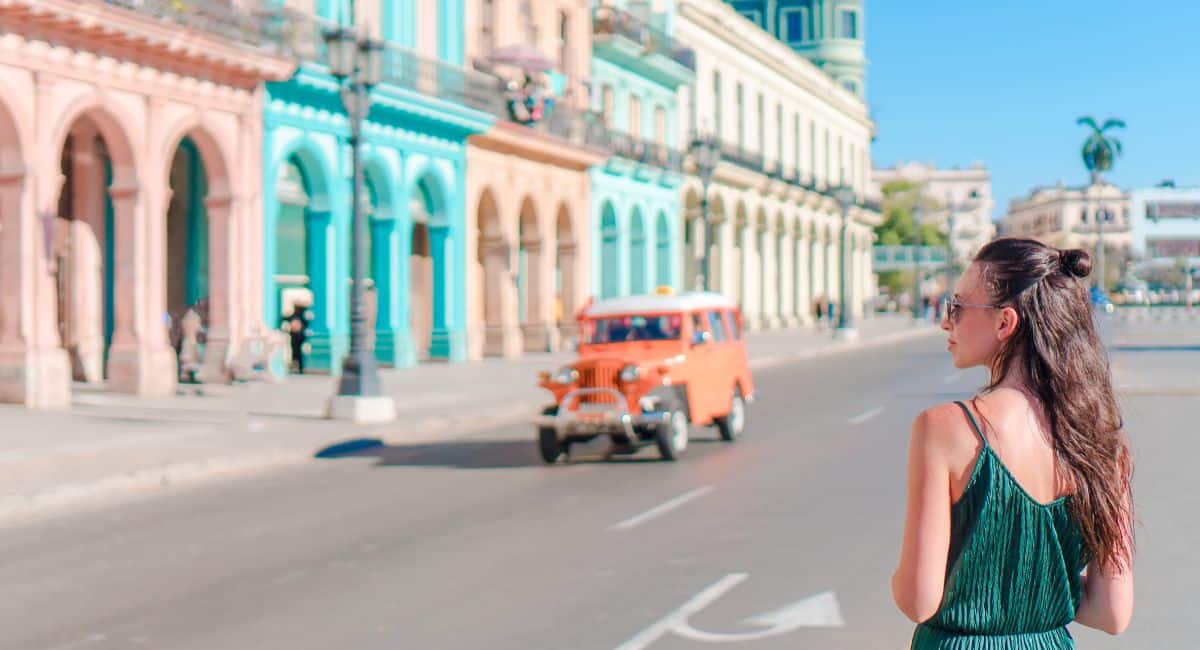Havana is a city that cannot be compared anywhere in the world. Filled with colorful colonial Spanish architecture, Caribbean music, classic cars and warm locals who treat you like family, this city invites you to a unique holiday experience.
Traveling to Havana is relatively safe if you take common sense precautions. Petty crimes such as theft or carjacking occur even in tourist areas. It is therefore advisable to be aware of your surroundings at all times.
Warn – International travelers who set foot in Cuba since January 2021 are no longer eligible for a US Visa Waiver Program (VWP). If you plan to visit or transit through the US territory, you will need to apply for a visa in one of your home countries American embassies.
Cities across Cuba are facing massive shortages of food, medicine, power and fuel. Let’s take a look at some important considerations to keep in mind if you do decide to visit Havana.
LATEST NEWS from Havana:
March 22 – Starving Cubans demand authorities provide food and electricity
The protesters in Santiago de Cuba and nearby towns are tired of having to endure all the hardships and are calling on the national government to give them food, fuel and electricity.
In 2021, thousands of residents took to the streets to protest food and electricity shortages and rising inflation. Needless to say, the situation has deteriorated since then.
In recent weeks, fuel and public transport costs have risen dramatically and power outages have spiraled out of control. All sports competitions had to be suspended because there is no fuel to power cars.
Bread, which was already insufficient, is now only given to children and pregnant women.
The Cuban president does not take any responsibility and has publicly blamed the US government and the “enemies of the revolution” for their attempts to cause national instability.
In an attempt to reduce the demonstrations, the government has given away some extra rations of rice, milk and sugar.
Permanent solutions have yet to be announced.
Crime statistics in Havana, Cuba
Although 88% of Cubans live in extreme poverty, this is the case in the country the crime level stands at 31.60 which is considered low.
| Crime level | 31.60 | Low | |
| Crime has risen in the past three years | 55.02 | Moderate | |
| Concerns about home invasion and stolen property | 36.06 | Low | |
| Afraid of being mugged or robbed | 33.99 | Low | |
| Getting your car stolen | 29.56 | Low | |
| Getting things stolen from your car | 37.35 | Low | |
| Afraid of being attacked | 25.02 | Low | |
| Afraid of being offended | 28.47 | Low | |
| Concerns about physical assault because of skin color, ethnicity, gender, or religion | 12.32 | Very low | |
| Problems with drug addicts and drug dealers | 22.54 | Low | |
| Vandalism and theft | 40.28 | Moderate | |
| Violent crimes such as armed robbery | 26.64 | Low |
Areas to avoid
Some travelers are curious about how Cubans ‘really live’ El Padrón, Cotorro, El Cerro, Diez de Octubre and Los Sitios. These zones are plagued by illegal businesses and shoddy housing.
It goes without saying that you should be extra careful when visiting such areas. Better yet, stick to touristy neighborhoods like Miramar, Vedado, and Siboney.
The current power outages increase the risk of pickpockets.
Travel advice
US travel advice
Cuba is in the rankings travel alert level 2. This means visitors “need to be more careful” when they are in the city.
According to the US Department of State, travelers can become victims of petty and violent crimes, armed attacks and murder. The authorities may not be able to help you if you venture outside Havana.
American travelers to Cuba must apply for one travel permit. Select a category called “support for the Cuban people”, as there is none for regular tourism.
Travel advice for Canada
Canada urges its citizens to “exercises a great deal of caution” when visiting the island due to a lack of food, medicine and gasoline.
According to this government, traveling around the island has become extremely difficult due to the current lack of public transport.
Renting a car is no longer a smart idea because there is a fuel shortage. Water is also rationed, even in hotels in Havana.
A shortage of food and medicine is also starting to have negative consequences for tourists.
Safety tips for Havana, Cuba
Havana is not experiencing its best days. If you do decide to take your chances, here are some tips to make your trip smoother.
- Please make sure you do not need a visa or have purchased one before booking your tickets.
- Now more than ever, take your own medications with you.
- This must be insane but also bring your own toilet paper.
- Do not drink tap water.
- Confirm prices before consuming products.
- Do not hand over your credit cards to bar or restaurant staff.
- Only use reputable transport companies.
- Petty crime is common in tourist areas and at the airport. Be aware of your surroundings.
- Always pack your valuables in hand luggage.
- Beware of the hurricane season which runs from June to November.
- Make sure you fill this out online declaration form.
- Make sure you are not carrying large amounts of cash.
- Travelers are required to take out health insurance to enter the country.
- Although foreign currencies are widely accepted, it is better to have some local money with you.
- Some streets have two different names. Make sure you know exactly where you are going.
- Choose private rather than state-owned enterprises. This way you help the local population.
- Don’t buy cigars on the street, they are usually fake.





